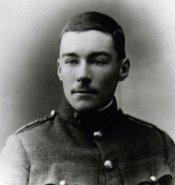Sir Philip Neame | |
|---|---|
 Philip Neame VC, pictured here as a young officer sometime before, during or after the First World War | |
| Born | 12 December 1888 Faversham, Kent, England |
| Died | 28 April 1978 (aged 89) Selling, Kent, England |
| Allegiance | United Kingdom |
| Service | British Army |
| Years of service | 1908–1947 |
| Rank | Lieutenant general |
| Service number | 4243 |
| Unit | Royal Engineers |
| Commands | British Forces in the Channel Islands (1945–47) Cyrenaica (1941) British Forces in Palestine and Trans-Jordan (1940–41) 4th Indian Infantry Division (1940) Royal Military Academy, Woolwich (1938–39) |
| Battles / wars | First World War Second World War |
| Awards | Victoria Cross Knight Commander of the Order of the British Empire Companion of the Order of the Bath Distinguished Service Order Knight of the Order of St John Mentioned in Despatches (6) Legion of Honour (France) Croix de guerre (France) Croix de guerre (Belgium) Order of the White Lion (Czechoslovakia) |
| Other work | Olympic gold medalist Lieutenant Governor of Guernsey |
Lieutenant General Sir Philip Neame, VC, KBE, CB, DSO (12 December 1888 – 28 April 1978) was a senior British Army officer and a recipient of the Victoria Cross, the highest award for gallantry in the face of the enemy that can be awarded to British and Commonwealth forces, and the winner of an Olympic Games gold medal; he is the only person to achieve both distinctions.[1]
During the Second World War, in the spring of 1941, Neame was commander of British troops in Cyrenaica (north-eastern Libya), recently conquered from the Italians by General Richard O'Connor. However, as the region was retaken by the newly-arrived Afrika Korps under Erwin Rommel, Neame and O'Connor were taken prisoner. Both men remained in captivity in Italy until the autumn of 1943.
- ^ "Philip Neame". Olympedia. Retrieved 5 November 2021.